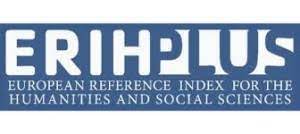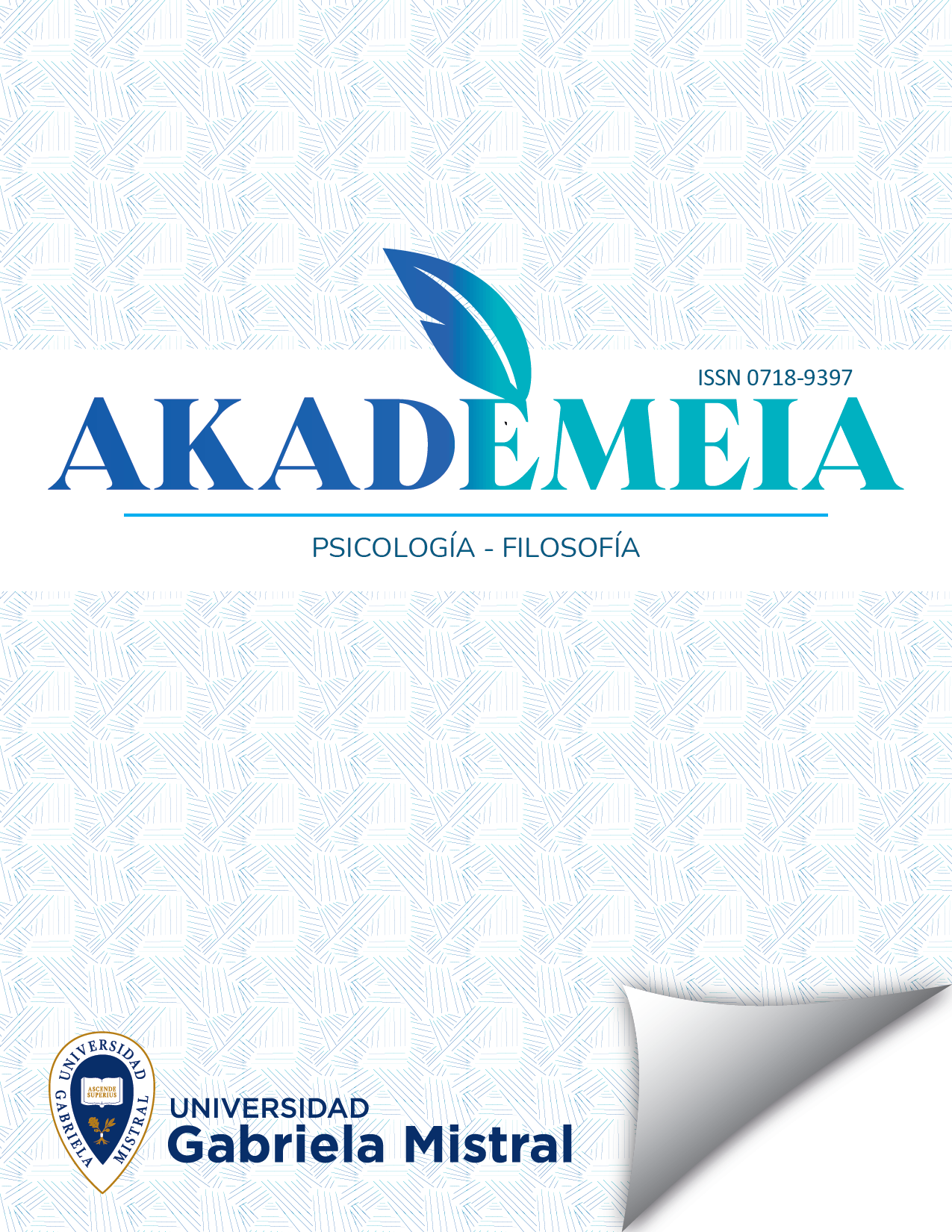Los contextos socio-culturales y el desarrollo de competencias: ejes articuladores de la investigación sobre alfabetización inicial
DOI:
https://doi.org/10.61144/0718-9397.2017.143Abstract
El propósito del presente artículo es revisar y clasificar la investigación realizada durante la última década sobre la alfabetización inicial, determinando los ejes articuladores de los estudios en este campo. La selección de la literatura respondió a criterios relacionados a la enseñanza de la lectura en los niveles iniciales. Para la comprensión de este amplio y complejo campo de estudio, la revisión se organizó en cuatro instancias. La primera, se relaciona con la aproximación global o parcial sobre el objeto de estudio. En un segundo momento, se distinguieron los ámbitos de los estudios relacionados a los espacios donde se realizan las prácticas. Luego, se clasificaron de acuerdo a las perspectivas epistemológicas y metodológicas utilizadas, revelando la existencia de diversos paradigmas de investigación. Finalmente, se detectaron las controversias y posiciones en los conceptos de alfabetización subyacentes en los estudios seleccionados, detectando dos ejes articuladores de la investigación en alfabetización, ya sea como un proceso de desarrollo de competencias psicolingüísticas o como un proceso en contextos históricos, sociales y culturales.
References
Barajas, K. E. & K. Aronsson (2009) Avid versus struggling readers: co-construed pupil identities in school booktalk. Language and Literature, 18, 281-299.
Bravo, L (2002) La conciencia fonológica como zona de desarrollo próximo. Estudios Pedagógicos
Block, C. C., M. Oakar & N. Hurt (2002) The expertise of literacy teachers: A continuum from preschool to Grade 5. Reading Research Quarterly, 37, 178-206.
Castells, N. (2009) Research on teaching and learning of early reading: Review and classification. Infancia Y Aprendizaje, 32, 33-48.
Chen, H. L. & B. Derewianka (2009) Binaries and beyond: a Bernsteinian perspective on change in literacy education. Research Papers in
Education, 24, 223-245.
Cheung, W. M., S. K. Tse, J. W. Lam & E. K. Y. Loh (2009) Progress in International Reading Literacy Study 2006 (PIRLS): pedagogical correlates of fourth-grade students in Hong Kong. Journal of Research in
Reading, 32, 293-308.
Clemente, M., E. Ramirez & M. C. Sanchez (2010) Theoretical approaches and teaching practices in early literacy instruction. Cultura Y Educacion, 22, 313-328.
Corbett, M. (2010) Backing the right horse: Teacher education, sociocultural analysis and literacy in rural education. Teaching and
Teacher Education, 26, 82-86.
Curdt-Christiansen, X. L. (2008) Reading the World Through Words: Cultural Themes in Heritage Chinese Language Textbooks. Language and Education, 22, 95-113.
Ehri, L. C., S. R. Nunes, S. A. Stahl & D. M. Willows (2001a) Systematic phonics instruction helps students learn to read: Evidence from the national reading panel's meta-analysis. Review of Educational Research, 71, 393-447.
Ehri, L. C., S. R. Nunes, D. M. Willows, B. V. Schuster, Z. Yaghoub-Zadeh & T. Shanahan (2001b) Phonemic awareness instruction helps children learn to read: Evidence from the National Reading Panel's meta-analysis. Reading Research Quarterly, 36, 250-287.
Farver, J. A. M., Y. Y. Xu, S. Eppe & C. J. Lonigan (2006) Home environments and young Latino children's school readiness. Early Childhood Research Quarterly, 21, 196-212.
Foster, M. A., R. Lambert, M. Abbott-Shim, F. McCarty & S. Franze (2005) A model of home learning environment and social risk factors in relation to children's emergent literacy and social outcomes. Early Childhood Research Quarterly, 20, 13-36.
Gonzalez, J. E., E. T. Goetz, R. J. Hall, T. Payne, A. B. Taylor, M. Kim & A. S. McCormick (2011) An evaluation of Early Reading First (ERF) preschool enrichment on language and literacy skills. Reading and Writing, 24, 253-284.
Gonzalez, X. A., C. Buisan & S. Sanchez (2009) Teacher's practices for teaching literacy. Infancia Y Aprendizaje, 32, 153-169.
Guo, Y., J. N. Kaderavek, S. B. Piasta, L. M. Justice & A. McGinty (2011) Preschool Teachers' Sense of Community, Instructional Quality, and Children's Language and Literacy Gains. Early Education and Development, 22, 206-233.
Hall, L. A. (2010) The Negative Consequences of Becoming a Good Reader: Identity Theory as a Lens for Understanding Struggling Readers, Teachers, and Reading Instruction. Teachers College Record, 112, 1792-1829.
Healy, A. (2009) The literacy wars: Why teaching children to read and write is a battleground in Australia. Australian Educational Researcher, 36, 143-143.
Jordan, G. E., C. E. Snow & M. V. Porche (2000) Project EASE: The effect of a family literacy project on kindergarten students' early literacy skills. Reading Research Quarterly, 35, 524-546.
Kim, Y. S. (2009) The relationship between home literacy practices and developmental trajectories of emergent literacy and conventional literacy skills for Korean children. Reading and Writing, 22, 57-84.
Lam, J. W. I., W. M. Cheung & R. Y. H. Lam (2009) Learning to Read The Reading Performance of Hong Kong Primary Students Compared with That in Developed Countries Around the World in PIRLS 2001 and 2006. Chinese Education and Society, 42, 6-32.
Lau, K. L. & D. W. Chan (2003) Reading strategy use and motivation among Chinese good and poor readers in Hong Kong. Journal of Research in Reading, 26, 177-190.
Lee, O., R. A. Deaktor, J. E. Hart, P. Cuevas & C. Enders (2005) An instructional intervention's impact on the science and literacy achievement of culturally and linguistically diverse elementary students.
Journal of Research in Science Teaching, 42, 857-887.
Lee, S., B. K. Han, E. Y. Ko, Y. L. Oh, J. H. Choe & J. H. Shin (2011a) The Ultrasonography Features of Hyalinizing Trabecular Tumor of the Thyroid Are More Consistent with Its Benign Behavior than Cytology or Frozen Section Readings. Thyroid, 21, 253-259.
Lee, Y. J., J. Lee, M. Han & J. A. Schickedanz (2011b) Comparison of Preschoolers' Narratives, the Classroom Book Environment, and Teacher Attitudes Toward Literacy Practices in Korea and the United States. Early Education and Development, 22, 234-255.
Lepola, J., P. Salonen & M. Vauras (2000) The development of motivational orientations as a function of divergent reading careers from pre-school to the second grade. Learning and Instruction, 10, 153-177.
Mathes, P. G., J. K. Torgesen & J. H. Allor (2001) The effects of peer-assisted literacy strategies for First-Grade Readers with and without additional computer-assisted instruction in phonological awareness. American Educational Research Journal, 38, 371-410.
Mehta, P. D., B. R. Foorman, L. Branum-Martin & W. P. Taylor (2005) Literacy as a unidimensional multilevel construct: Validation, sources of influence, and implications in a longitudinal study in grades 1 to 4. Scientific Studies of Reading, 9, 85-116.
Moje, E. B., K. M. Ciechanowski, K. Kramer, L. Ellis, R. Carrillo & T. Collazo (2004) Working toward third space in content area literacy: An examination of everyday funds of knowledge and discourse. Reading Research Quarterly, 39, 38-70.
Pan, B. A., M. L. Rowe, J. D. Singer & C. E. Snow (2005) Maternal correlates of growth in toddler vocabulary production in low-income families. Child Development, 76, 763-782.
Senechal, M. (2006) Testing the home literacy model: Parent involvement in kindergarten is differentially related to Grade 4 reading comprehension, fluency, spelling, and reading for pleasure. Scientific Studies of Reading, 10, 59-87.
Smagorinsky, P. (2001) If meaning is constructed, what is it made from? Toward a cultural theory of reading. Review of Educational Research, 71, 133-169.
Smagorinsky, P., L. S. Cook & P. M. Reed (2005) The construction of meaning and identity in the composition and reading of an architectural text. Reading Research Quarterly, 40, 70-88.
Smith, F., F. Hardman, K. Wall & M. Mroz (2004) Interactive whole class teaching in the National Literacy and Numercy Strategies. British Educational Research Journal, 30, 395-411.
Stein, J. (2001) The sensory basis of reading problems. Developmental Neuropsychology, 20, 509-534.
Villalon, M ( 2004) Los procesos cognitivos y el aprendizaje de alfabetización inicial. Estudios Pedagógicos,
Taylor, B. M., P. D. Pearson, K. Clark & S. Walpole (2000) Effective schools and accomplished teachers: Lessons about primary-grade reading instruction in low-income schools. Elementary School Journal, 101, 121-165.
Taylor, B. M., P. D. Pearson, D. S. Peterson & M. C. Rodriguez (2003) Reading growth in high-poverty classrooms: The influence of teacher practices that encourage cognitive engagement in literacy learning. Elementary School Journal, 104, 3-28.
Triplett, C. F. (2007) The social construction of "struggle": Influences of school literacy contexts, curriculum, and relationships. Journal of Literacy Research, 39, 95-126.
Ukrainetz, T. A., M. H. Cooney, S. K. Dyer, A. J. Kysar & T. J. Harris (2000) An investigation into teaching phonemic awareness through shared reading and writing. Early Childhood Research Quarterly, 15, 331-355.
How to Cite
License
Los autores/as conservarán sus derechos de autor y garantizarán a la revista el derecho de primera publicación de su obra, el cual estará simultáneamente sujeto a la Licencia de reconocimiento de Creative Commons (CC BY-NC-ND) 4.0 que permite a terceros compartir la obra siempre que se indique su autor y se comparta el documento, en formato pdf y con la paginación del número original, a través del que este ha sido publicado por la revista. Siguiendo las definiciones establecidas por la licencia (ver: https://creativecommons.org/licenses/by-nc-nd/4.0/deed.es) los números de la revistas seguirán los siguientes términos:
-
Atribución — Usted debe dar crédito de manera adecuada, brindar un enlace a la licencia, e indicar si se han realizado cambios. Puede hacerlo en cualquier forma razonable, pero no de forma tal que sugiera que usted o su uso tienen el apoyo de la licenciante.
-
No Comercial — Usted no puede hacer uso del material con propósitos comerciales.
-
Sin Derivadas — Si remezcla, transforma o crea a partir del material, no podrá distribuir el material modificado.
- No hay restricciones adicionales — No puede aplicar términos legales ni medidas tecnológicas que restrinjan legalmente a otras a hacer cualquier uso permitido por la licencia.












